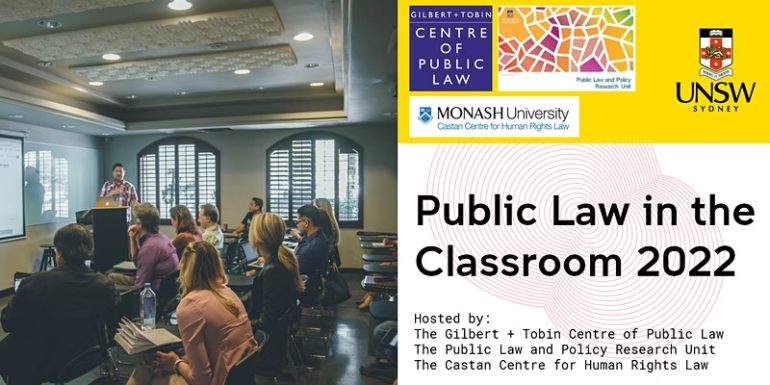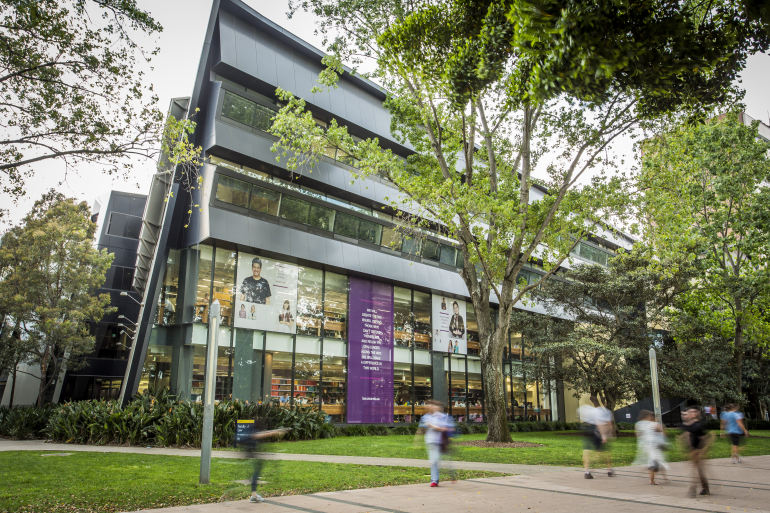The eighth annual Public Law in the Classroom workshop will be held via Zoom on Thursday, 10 February 2022.
Session 1: Teacher engagement and motivation
Teaching is a challenging thing to do at the best of times. We often frame our thinking around how to motivate students; whether it is to attend lectures, do their reading, or participate more fully in classroom discussions. While these are important questions, we think it is useful to think about how to keep teachers engaged and motivated. What does teacher engagement and motivation mean? How do we keep the momentum up in challenging, busy times with many competing demands on our time and attention? How does teacher engagement and motivation help us think about the challenge of motivating students? In this panel we invite our panelists to share their expertise, research and experience around teacher engagement and motivation. We invite them to prod and provoke us into thinking more deeply about what motivates and engages us, and how that feeds into our teaching.
Panel:
Dr Rebecca Collie (UNSW)
Dr Sarah Hook (Western Sydney University)
Dr Murray Wesson (UWA)
Chair: Dr Svetlana Tyuklina (UNSW)
Session 2: Extensions of public law
Many contemporary challenges take us to the frontiers of public law. In this second panel, our panelists canvas the establishment of mechanisms for meaningfully designing our public institutions to recognise and give voice to our First Nations peoples, the rise of technocratic decision-making and how it fits with notions of parliamentary sovereignty, representative government and government accountability, and the outsourcing of government functions to non-governmental actors. They discuss these challenges and provoke us to think about how they may be incorporated into our teaching both in core and elective courses.
Panel:
Dr Dani Larkin (UNSW)
Dr Janina Boughey (UNSW)
Dr Eric Windholz (Monash University)
Chair: Shreeya Smith (UNSW)
Suggestions for small-group gatherings
We look forward to joining you at the Public Law in the Classroom Workshop for 2022 to continue our tradition of camaraderie, collegiality and collaboration. There will be two panels, each running for 90 minutes. We have invited our panellists to share their reflections and provocations with the group in their initial presentations. We plan that following the initial presentation, workshop participants will be split into breakout groups to share their own perspectives and experiences and reflect on the provocations and reflections shared by the panellists. Each session will conclude with an opportunity to share some of these insights with the whole group and engage in further group-wide discussions.
PLIC has always been about the public law teaching community coming together, sharing ideas and strengthening our bonds. To this end, we encourage participants to come together in their locations where such gatherings fall within the COVID-SAFE rules and recommendations in your jurisdiction. This could see participants gather during the breaks, or before or after the workshop, or to participate in the workshop from a shared venue. Should you decide to participate from a shared venue, given the significant virtual small-group discussion component of the panels, we recommend that participants join from their own devices and use a headset. We would also recommend selecting a venue with sufficient space for individual workshop participants to engage in breakout group discussions without disturbing other workshop participants in the same venue.
While we are sad that we can’t see all of you in Sydney this time again, we are excited about coming together after what has been another tough year that has thrown up many challenges for the practice of public law teaching.


